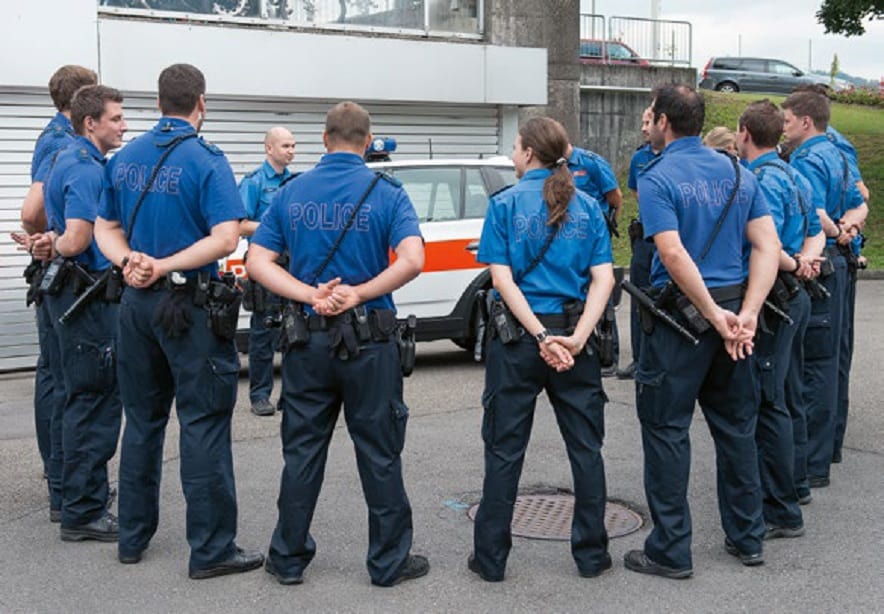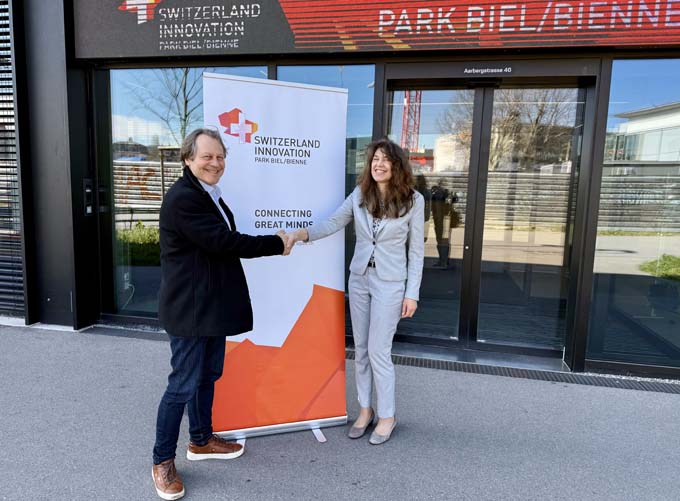Competencies of a larger corps
Stefan Lanzrein, head of the Bernese Oberland Regional Police (Bern Cantonal Police), co-authored an EMBA master's thesis* on "The police as a learning organization" at the Lucerne School of Business. What lessons does he draw from this in practice, where social developments could not be more dynamic?

Mr. Lanzrein, there are employees on the stationed and mobile police, for example in the operations centre or in the manhunt. The Bernese Oberland Regional Police is always on duty in the office, on roads, lakes, passes and mountains. - How do you promote collegiality among employees at such different professional levels?
Stefan Lanzrein: The collegiality among police officers is very high. One of the main reasons for this is certainly the common and unifying background provided by the police school. Interdepartmental further training and, above all, joint operations promote and deepen cohesion.
In my region, we place particular emphasis on the latter aspect: managing tasks and events in teams promotes mutual understanding, serves to exchange information, enables a transfer of knowledge and promotes a sense of community in different services.
Do you draw a line at all between higher-level leadership and interdisciplinary teamwork within an organization like yours?
It is important for the cantonal police that employees demonstrate qualities both as leaders and as team players, in different constellations, from case to case. If a patrol goes out to an incident - a traffic accident or a brawl - it is agreed on the approach who will be responsible for dealing with the incident ("incident coordinator front") and who will be responsible for the investigation ("incident commander case").
As a rule, rank and experience do not play a role. If additional patrols are required to deal with an incident, they are integrated into this basic structure of "frontline coordinator/incident commander". The "front line coordinator" therefore often needs leader qualities in order to fulfil his leadership function. And since these are everyday, constantly changing constellations, it must be assumed that someone is able to cope well in both roles.
What do you mean by constructive criticism within a corps?
On the one hand, there is the ability to give feedback in an adequate form. This means that one is able to describe a fact precisely, to focus on a decision or a behaviour and not on the person behind it, to choose an appropriate framework, to strike an appropriate tone and to handle emotions with restraint. On the other hand, the ability to accept critical comments, to reflect and to react adequately is expected. It is expected to show interest in feedback, to deal with criticism and to signal this clearly to the other person. Furthermore, the focus should be on the matter at hand - one should not feel questioned as a person. Finally, contact with the person giving the criticism must be maintained.
Personally, I also expect all those involved to have a certain openness and to think seriously about whether things might not have been different from what they assumed or claimed ("contingency").
Do points from your Master's thesis also flow into interdisciplinary police training? In what way?
The commander of the Bern Cantonal Police has taken good note of the content of the master's thesis, and it is certainly also for this reason that a project has now been launched at his instigation, which will take up the topic of "learning organisation" and introduce concrete measures. The focus will be on the further development of our feedback culture. Proposals that also relate to our training and further education are very conceivable.
How do you "measure" the learning processes? Which instruments do you use for this?
A wide range of instruments is available for this purpose, many of which can also be used in specific situations. Examples include performance reviews and behavioural appraisals (in relation to self-, social, professional and methodological competence) and employee appraisals (see constructive criticism) with target agreements.
Where do you think the greatest potential of a learning police organisation lies?
As you have mentioned, a police force also moves in a dynamic environment. Their own operational experience, the experience of other police forces, social and legal developments, feedback from the population - to list just a few factors - require a constant review of their own actions.
The transmission of the consequences resulting from these dynamics in proper training and further education processes is by its very nature costly and often lengthy, especially in a relatively large corps such as that of the Bern Cantonal Police with approximately 2500 employees. It is therefore all the more important that the potential for learning and change is internalised in every single member of staff and is thus virtually built into the police organisation. After all, it is important to ensure the best possible safety for the population under the given conditions and to keep a close eye on the health of the employees.
Keyword: Digital challenges. How do you make your organization fit for the social media generation that communicates in real time?
The cantonal police of Berne is involved in this area on many levels - be it in investigation methods, in the techniques used, in equipment, in the context of communication with citizens. In addition, new generations of police officers have largely grown up with this topic and therefore already bring a lot of new knowledge and the necessary affinity for this topic with them when they join the corps and beyond.
How does this affect the development of your learning organization?
I am convinced that there is considerable potential here, especially for the transfer of knowledge in corresponding networks. In part, this is already a reality for the police, although it is noticeable that it is limited to groups that can be well delimited thematically and are already well networked. From my point of view, the possibilities of use for a broader group of people must now also be examined.
But I also see considerable challenges, for example in areas of quality management.
What lessons do you learn from feedback from the population? How are the feedbacks evaluated and how are the "learnings" communicated to the outside world?
Feedback from the public is taken very seriously. Thus, first of all, a statement is obtained from the involved police members and, if necessary, the operation is discussed with them. Afterwards, feedback is given to the person giving the feedback, either in writing or verbally, by telephone or in a personal conversation. My experience has been that, particularly in the case of oral communication, very constructive discussions are held in the vast majority of cases, and even controversial matters can be settled in a pleasingly uncomplicated manner.
Internally, the feedback is also centrally recorded and periodically systematically evaluated. This is intended to identify any correlations, which in turn will be incorporated into the training and further education of the Bern Cantonal Police.
Are there far more important goals than digital transformation that you see for the police service?
In my opinion, the Bern Cantonal Police is very well positioned, and this also applies to the Bernese Oberland Regional Police. We try to recognise changing requirements or opportunities that arise in good time so that we can take action at an early stage. In recent years, for example, we have taken up the trends in mountain sports among our mountain specialists and developed our team accordingly.
For me, however, the focus is on the current security situation and the concrete consequences that result from it.
Are you continuing your education as well? Your motives?
It goes without saying! Although the two-year EMBA course at the HSLU was very useful for me and I also enjoyed it very much, I am now concentrating again on topics that I am confronted with in my current job. Firstly, I still find dealing with police topics extremely interesting, and secondly, I feel great satisfaction when I can apply what I have learned directly to my daily work.
Admittedly, also due to the very positive experiences at the HSLU, I can definitely imagine tackling a new, non-police training course again at a later date.









